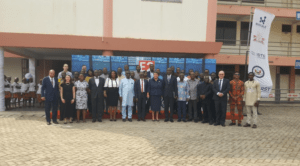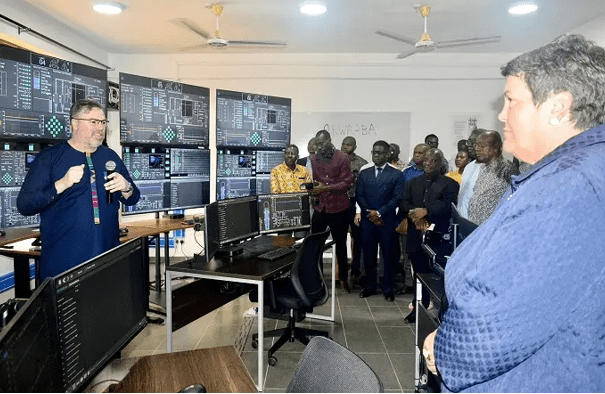By Buertey Francis BORYOR
Ghana has unveiled a high-tech simulator at the University of Nuclear and Allied Sciences to advance its energy sector and promote nuclear research and training.
The NuScale Energy Exploration (E2) Simulator, the first of its kind in Africa, aims to serve as a training and research hub for nuclear scientists.

Funded by the United States under the Department of State’s Foundational Infrastructure for Responsible Use of Small Modular Reactor Technology (FIRST) programme, the simulator represents a significant step forward in the country’s energy development agenda.
The new small modular reactor (SMR) training centre, located in Accra, is expected to play a pivotal role in workforce development and capacity building across the continent, cultivating a new generation of skilled professionals to propel Africa’s energy sector.
The U.S.-Ghana partnership extends beyond the simulator, encompassing a nuclear welding certification programme and a collaboration with Texas A&M University to develop curricula related to SMRs.
Speaking at the launch, U.S. Ambassador to Ghana, Mrs. Virginia E. Palmer, emphasised the collaboration’s alignment with global nuclear safety and non-proliferation standards. She lauded the country’s leadership in civil nuclear development and reiterated the United States’ commitment to supporting its energy independence and economic growth.
“We are particularly pleased to partner with Ghana, a regional leader in civil nuclear development. U.S. small modular reactors (SMRs) and other advanced reactor technologies build on over 65 years of U.S. innovation and expertise in nuclear energy,” Mrs Palmer said.
Prof. Samuel Boakye-Dampare, Director-General of the Ghana Atomic Energy Commission, described the simulator as a milestone in Ghana’s nuclear journey. He highlighted its potential to equip the workforce with the knowledge and skills required to operate nuclear reactors effectively.
“The knowledge and skills developed here will be applied to real-world nuclear reactor operations, ensuring Ghana’s ability to advance in this critical field,” Prof. Boakye-Dampare stated.
He also noted the importance of the Nuclear Welding Certification Programme, developed in partnership with the International Science and Technology Centre (ISTC), in creating a robust supply chain for nuclear reactors.
Prof. Boakye-Dampare added that the centre would foster innovation, research and local industrial participation, contributing to the nation’s nuclear capabilities while promoting economic growth.
Established in 2006 through a collaboration between the University of Ghana and the International Atomic Energy Agency (IAEA), the Graduate School of Nuclear and Allied Sciences (SNAS) has played a key role in building human resource capacity to support the country’s nuclear ambitions.
The SMR training hub is expected to inspire students across Africa to pursue careers in Nuclear Physics and Engineering while enhancing pedagogy and research in the field.










